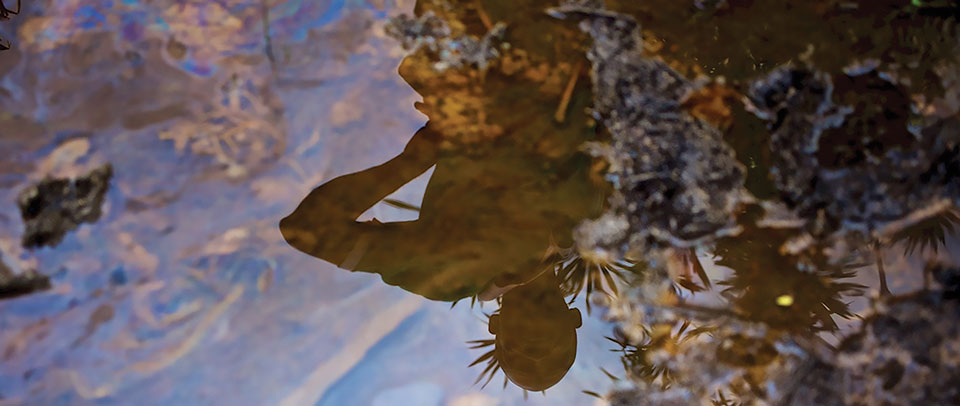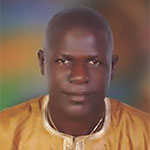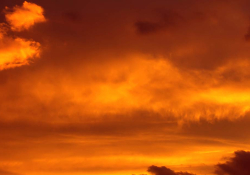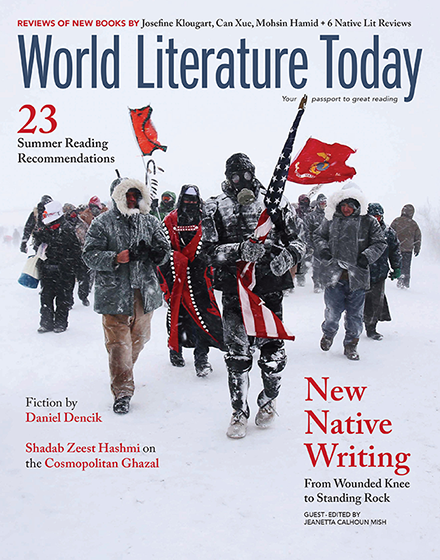Ebi Yeibo’s Poetic Unfolding of Nigeria’s Postcolonial History

Niger Delta poet Ebi Yeibo’s verse lyrically engages the Nigerian nation on looming postindependence issues while still concluding almost every poem with a blind, unnegotiable confidence in the belief that the nation will eventually be freed from the stranglehold of tyrannical government.
Contemporary African literature continues to reverberate with the burden of sustaining the idea of nationhood and the inability of government to nurture the seeds of independence to root. The gloom and disillusionment that settled on the continent shortly after the independence of most African states not only signaled what would become cardinal defining indices for calibrating governance in Africa—the continuous failure of leadership, the debility of the masses, and bureaucratic inefficiency—they equally reinforced the need to reinvent African identity and reorder Africa’s sociopolitical condition, which has been tumultuous. Ebi Yeibo’s Shadows of the Setting Sun (2012) arguably epitomizes the historical strain established in the imaginative composition of African writers who responded to the indiscretion and blatant wastage of resources by Africa’s emergent leaders from the late 1960s. Without a doubt, as Syned Mthatiwa has said, “Independence did not bring freedom and happiness, as the people had expected, but more pain and suffering as a result of the dictatorial tendencies of postcolonial leaders.”
Yeibo is a product of the economic bondage Africa continues to suffer many years after political independence. Indeed, this trajectory is by no means recent because it virtually contours the artistic canvas of every African writer who understands the symbiotic relationship between cultural products and the sociohistorical context from which they are derived, on one hand, and the burden of re-creating this tortuous experience on the other. With the publication of this collection of poems, Yeibo has entrenched his place as a poet not just on the assembly line but as one who pragmatically engages and interrogates history with the aim of adjusting the course of governance so that the nation does not sink as government continues to compromise the economy, which has almost become lame.
Yeibo as a poet needs no introduction within the Nigerian context. His place in the emergent tradition of Nigerian poetry is without doubt very visible considering the artistic temper of his poetry—the kind of poetry I describe as poetic protest. His poetry occupies a vibrant space when discussing the history and evolution of modern Nigerian poetry in English.
His poetic engagement with Nigerian politics and history situates his poetry within the artistic frame of older Nigerian poets like Christopher Okigbo, Wole Soyinka, Odia Ofeimun, Niyi Osundare, Ossie Enekwe, and Okinba Launko as well as the younger generation of poets including Funso Ayejina, Harry Garuba, Ezenwa-Ohaeto, Olu Oguibe, Remi Raji, Nduka Otiono, Unoma Azuah, Ademola Dasylva, Tade Ipadeola, and Jumoke Verrissimo, among others. He is even more visible within the corpus of writing we today label Niger Delta literature—a literature not only combative but gradually becoming programmatic and ritualistic. Tanure Ojaide describes Niger Delta literature as “literary works that are either set in the Niger Delta or take their themes from the experiences of the people of the region.” Poets like Tanure Ojaide, Onookome Okome, Ibiwari Ikiriko, Nnimmo Bassey, Sam Ukala, Barine Ngaage, Joe Ushie, Ogaga Ifowodo, Adiyi Bestman, and Obari Gomba fall within this emerging tradition of ecoconscious poetic engagement with the Niger Delta habitat, which continues to disappear as a result of the profound contradictions that characterize existence in the region.
With his most recent poetry collection, The Fourth Masquerade (2014), which won him the Association of Nigerian Authors’ Poetry Prize, Yeibo has published five books of poetry; a sixth, entitled Of Waters and the Wild, is in press. His other poetry collections are Maiden Lines (1997), A Song for Tomorrow (2003), and The Forbidden Tongue (2007). From a close reading of Shadows of the Setting Sun, one can easily observe remarkable development in his poetry, especially at the level of technical maturity. In fact, Shadows of the Setting Sun is undoubtedly Yeibo’s finest contribution to contemporary African poetry in English, for now, considering both craft and message.
The title of this collection does not give one enough yardage to ascertain Yeibo’s artistic cum social vision. It carries the power of the apocalyptic temperament of Okigbo’s prophetic tidings in his poetry, which paints the picture of a nation on the verge of collapse. However, though Yeibo engages the Nigerian nation on pressing postindependence issues still looming in the polity, he concludes almost every poem with a blind, unnegotiable confidence in the belief that the nation will eventually be freed from the stranglehold of tyrannical government—that is, the power or the ability of light to eat up the shadows of dodgy politics and drowsiness on the part of the ruled. Yeibo sustains this hope and questions the project of Nigeria by employing different rhetorical devices that range from the use of rhetorical questions which make the subject of his attack almost indefinite, deliberate use of qualifiers, the diurnal arrangement of the earth like twilight, rainbow, dawn to make social commentary, and the personification of inanimate items, especially when dealing with issues that border on the Niger Delta question.
Though lyrical, the title poem, “Shadows of the Setting Sun,” carries the tone of a nation in crisis:
This searing spectacle:
Disoriented doves flapping feisty wings
On withering iroko trees, in twilight
Tell the tale of brooding clouds
Swallowing blazing bulbs of the sun;
Incensed clouds summon a deluge;
Withering tendrils sprout in the field
When farmers grow blisters,
Like cocoyam planted on arid furrows
In coasts belching forth crude
Doped fishes floating on the river
Like meaningless rubble.
The poem is an invitation to the trouble with the nation, which lacks almost nothing yet where nothing functions well, thus it begins with: “This searing spectacle.” It is equally imperative to note the use and relevance of the colon. The metaphor of “Doped fishes floating” on their own domain, “the river,” is an indication of the agony and challenges of negotiating existence in the Nigerian nation. The second and third poems, “Scrambled Sunlight” and “Broken Covenant,” are even more revealing about the manner in which politicians engage or conduct the business of leadership or governance:
A politician’s mouth is full of monuments
Rumbustious raconteurs whose landmarks
Bump into each other
Like rudderless speed boats.
Indulgent demagogues,
Their mouths boast the bridal sun
Lighting up the vast universe
In three days;
Their hands build delinquent bulbs
Spelling charcoal-dark nights
On the labials of lame loins
Till the world’s end.
Lithesome minstrels,
Their mouths gaysome songs
Of unfailing fuel.
The excerpt above reveals the duplicity with which politicians attract the attention of the debilitated masses. Political campaigns in the Nigerian democracy only give room for would-be political officeholders to make promises that are not only irredeemable but also unrealizable. However, the absence of a formidable opposition complicates the issue of the hopeless promises of the state society, because after their victory the electorates hardly find a platform for retrospection in order to dialectically question those who eventually emerge as victors on the basis of their campaigns and manifestoes. This is made worse by the absence of a functional public sphere, a realm that offers the civil society a base upon which to reappraise state society.
Recent socioeconomic issues in Nigeria depicted in Shadows of the Setting Sun include the laudable programme that was then launched in virtually every state in Nigeria, Dora Akunyili’s “Rebranding Project.” Another is the menace of the Islamist religious sect from the North, Boko Haram, and of course the fuel subsidy saga during the administration of the immediate past government under the leadership of Goodluck Jonathan. The poem “Rebranding” not only interrogates the complications this project has dragged Nigerians into but also its relevance to a nation reeling under the burden of leadership. The same sets of politicians crippling the nation are the ones responsible for the propagation of the programme:
What has the hunter
Of hallowed heights,
Sirened sainthood,
With plagues and hurricanes
Seeking to dim, or even extinguish
Crowded stars in the closet
Blitzy, earthy, febrile
Bursting forth into those irrepressible waves
Ruling vast oceans of the world?
The refrain “See, passion is peanut / Even a pest has passion” pragmatically questions the relevance of the programme, even when most people saw it as one practical means of escaping the doldrums. Yeibo seems to be insisting on the irrelevance of philosophizing or playing games with issues that demand pragmatic and urgent solutions.
As a poet concerned with socioeconomic liberation, Yeibo takes the reader through the Nigerian social turf. However, as a poet from the Niger Delta, one who understands the true meaning of the social contract and the cathartic quality peace offers an oppressed person, he reevaluates the amnesty project offered the Niger Delta people as a process toward peace building. The poem “Eclipse of the Rainbow” takes us back to the base of amnesty policy and how it has fared so far:
A shrewd designer made the layout,
Like the monstrous melody of Fela’s Zombie:
Open the door
And step into silence
Be motionless, like a grounded canoe.
Then,
Hurl your wills and weapons
Unto the whirling waves
Swell your wallets and wardrobes
And shut the door
Against the stirring sun.
The poem takes us back to the process of negotiations and the importance of voicing and constructive resistance against a system whose intention is to subject the people to absolute despotism. In 2009 the Nigerian government offered the Niger Delta “militants” what is now popularly described as the amnesty package in order to create a platform for meaningful dialogue among stakeholders that would in turn create a peaceful environment for redressing the Niger Delta question. The Yar’Adua/Jonathan administration came up with the amnesty policy, geared toward a radical transformation of the Niger Delta. The transformation was supposed to be quadrilateral: disarmament, rapid infrastructural development of the Niger Delta, rehabilitation, and reintegration of the “lost souls” (militants) into an already saturated and depressed society. It appears that the amnesty deal was not meant to be the solution but was meant to placate the people to give peace a chance and allow the continuous flow of oil. Considering the activities of the Niger Delta Avengers, a new insurgent group, it becomes glaring that the amnesty policy was not intended to address the political, economic, and socioenvironmental problems that are the main drivers of conflict in the Niger Delta in the first place. Rather, the policy is geared toward allowing the federal government and transnational oil firms unhindered access to oil and gas resources in the region.
It appears that the amnesty deal was not meant to be the solution but was meant to placate the people to give peace a chance and allow the continuous flow of oil.
Considering a cardinal point in conflict resolution in Africa, articulated in the special report of the United States Institute for Peace—“Africans should determine under what conditions it is helpful to have the international community engaged in conflict resolution efforts”—it is interesting to note that there seems to be a “broad consensus that conflict prevention, management, or resolution in Africa requires the Africans themselves to act as a rudder, guiding the peace process forward and working with local disputants to bring about conciliation.” Reference is made to Fela, the bohemian Afro-beat singer, with emphasis on his “Zombie” to give expression to the process of the zombification of the Niger Delta freedom fighters or so-called militants. The agonistic impulse of the poet is easily understandable here. The amnesty package excluded the people and the devastated environment, and the government continues to deal with a few individuals who have been removed from their primordial base where the devastation continues unabated:
Remember,
The intransigent fly
Will be buried with the corpse.
True, we joined the eerie procession
Down the canal, in this fecund fog
Lining the distant sky
Never did we know
What loaded our canoe
Was the lurid booty of brothels
A line of commodified consciences
A stanza of self-immolation.
The graphological design of the poem reinforces the zombification process. Yeibo pushes the debate further as he explores the misery the Nigerian government leaves behind after their bloody reprisals in oil-producing communities in the Niger Delta. In “For JTF,” a poem Yeibo dedicates to the late Dr. E. E. Kpeke of Niger Delta University, Wilberforce Island, the discourteousness and the insensitivity of the “green gods” are brought to the fore in order to demonstrate that the Nigerian government has but a single agenda for the Niger Delta people, the urgency to completely silence them regardless of the mechanism deployed. Green gods here represent the military designation, the Joint Task Force, a special force saddled with the responsibility of restoring peace and hope through the preservation of lives and properties. The journey to Aghoro for the funeral ceremony offers the poet a vantage post to observe the extent of damage done an already exploited group.
The artistic strength of Shadows of the Setting Sun spans beyond the sublimity of language and the oracular delivery of message. Yeibo’s biggest asset in this collection is the unequivocal balancing of his agonistic impulse with the enchanting and unique style with which the poems delicately restore the faith of victory of the people over their adversaries. This unflinching faith is reminiscent of the laughter of victory, of a battle yet to be won in the poet’s A Song for Tomorrow and Other Poems (2003).
The last poem in the collection, “Comforting the Creeks,” reestablishes the uniqueness of Yeibo’s style in sustaining his artistic vision. It reminds one of Niyi Osundare’s “Our Earth Will Not Die.” The poem is not only reassuring, it equally reminds one of our eternal connection to the earth and the need to sustain it as it is mankind’s material cum spiritual support base:
One day, the cage will crumble
And as steam-bath banishes malaria fever
Claustrophobic creatures, carcasses
Will kiss the blue sky
In a feisty union with the sun.
Who says a sterile stump
Never grows in dollops of dew?
Is a corpse scared of the spectacle
Of advancing grave-diggers?
The damned do not fear drowning.
No lizard ever dies
Of perpetually hugging the earth.
The excerpt above carries the tone of an absolute resoluteness of faith and a belief in change no matter how slowly it advances.
No doubt, Yeibo’s development as a poet is easily noticeable in this collection, especially for people like myself who have followed his growth from our undergraduate days at Abraka where would-be poets struggled for space on the notice board and walls to impress fellow students and lecturers with their loose verse. By the time his poems got into Afflatus, the student magazine at Abraka which functioned as a nursery bed for budding writers, Yeibo made one point clear, that he was a poet to look out for. With the publication of Shadows of the Setting Sun, Yeibo’s poetry has no doubt gone beyond protest; it has become an intricate ritual continuing to unfold the complex layers of Nigeria’s postcolonial history with his experience as a product of that history functioning as the barometer to measure the process.
Niger Delta University
 Ebi Yeibo is the author of six collections of poetry and winner of the ANA Poetry Prize (2014) and the Isaac Boro Prize for Niger Delta Literature (2008). He was shortlisted for the Pat Utomi Prize for African Literature and the ANA Poetry Prize (2005). Yeibo teaches in the Department of English and Literary Studies, Niger Delta University.
Ebi Yeibo is the author of six collections of poetry and winner of the ANA Poetry Prize (2014) and the Isaac Boro Prize for Niger Delta Literature (2008). He was shortlisted for the Pat Utomi Prize for African Literature and the ANA Poetry Prize (2005). Yeibo teaches in the Department of English and Literary Studies, Niger Delta University.











